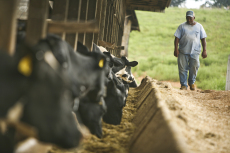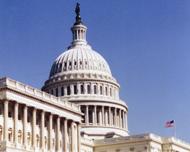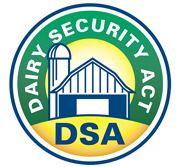WASHINGTON, DC — “The Agriculture Workforce Coalition (AWC) strongly applauds the Senate Judiciary Committee for approving S. 744, the Senate’s comprehensive immigration bill, out of committee on a strong bi-partisan vote of 13-5.
“The legislation includes agricultural provisions that reflect the agreement that the AWC and the United Farm Workers union reached earlier this spring. These provisions are vital to ensuring that America’s farmers and ranchers can find the workers they need to pick crops, prune trees or care for animals.
“Agriculture stands united in support of the agriculture provisions contained in the Senate bill, and we look forward to seeing the process advance to the Senate floor after the Memorial Day recess.”
About the Agriculture Workforce Coalition
The AWC brings together organizations representing the diverse needs of agricultural employers across the country. It serves as the unified voice of agriculture in the effort to ensure that America’s farmers, ranchers and growers have access to a stable and secure workforce.
To help achieve this goal, the AWC has reached a landmark agreement with the United Farm Workers union that presents a viable solution to agriculture’s labor needs. The proposal includes both an earned adjustment in status for current agricultural employees who presently lack legal status and a program to ensure an adequate farm workforce in the future. Also, unlike current programs such as H-2A, this agreement would mean that all types of producers—including both those with seasonal labor needs and ones with year-round labor needs—have access to the workforce they need to remain productive and competitive.
To learn more about AWC, visit our website at www.agworkforcecoalition.org.
The National Milk Producers Federation, based in Arlington, VA, develops and carries out policies that advance the well-being of dairy producers and the cooperatives they own. The members of NMPF’s 30 cooperatives produce the majority of the U.S. milk supply, making NMPF the voice of more than 32,000 dairy producers on Capitol Hill and with government agencies.

 ARLINGTON, VA – A
ARLINGTON, VA – A  From Jerry Kozak, President and CEO, NMPF:
From Jerry Kozak, President and CEO, NMPF:







